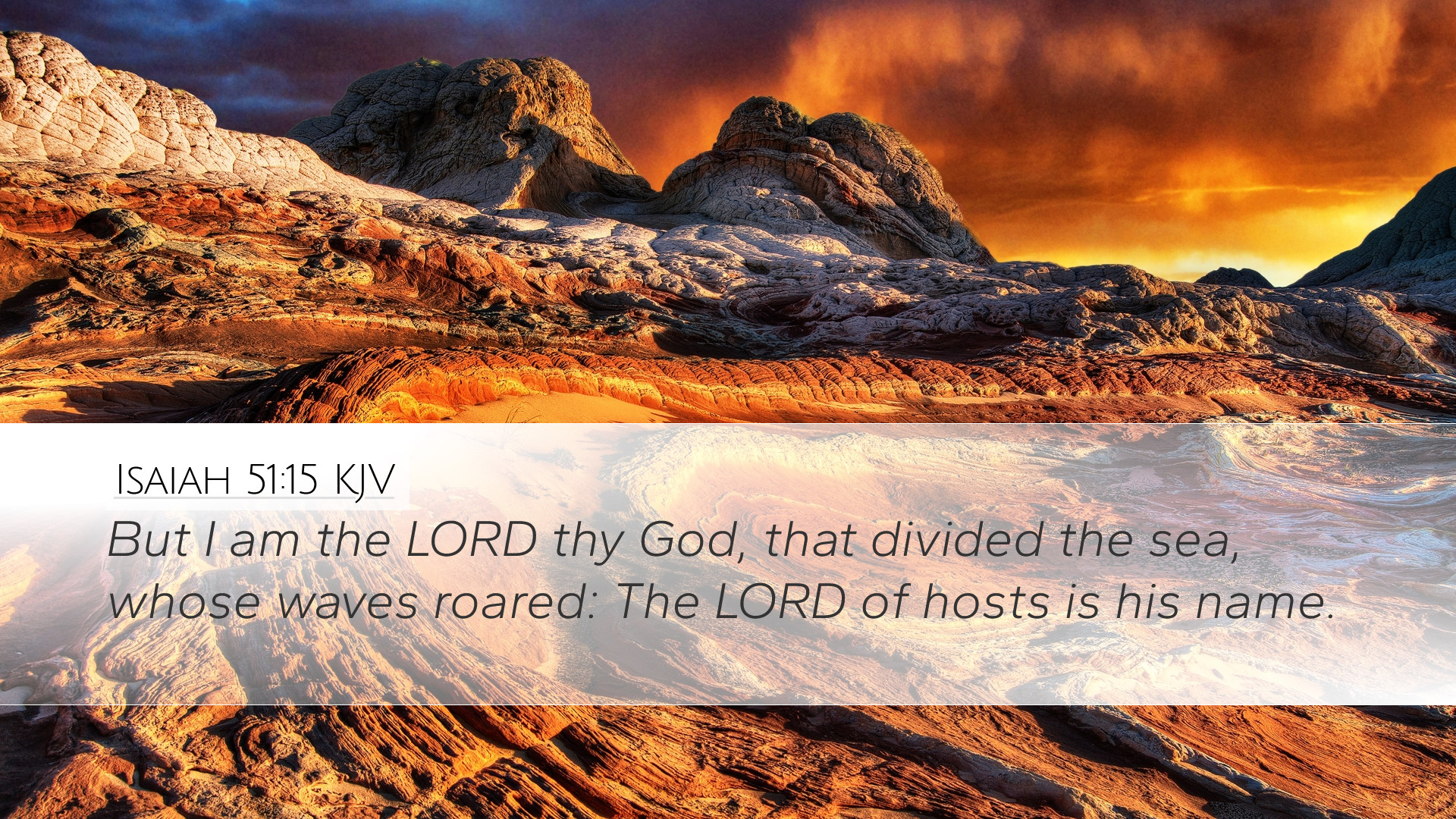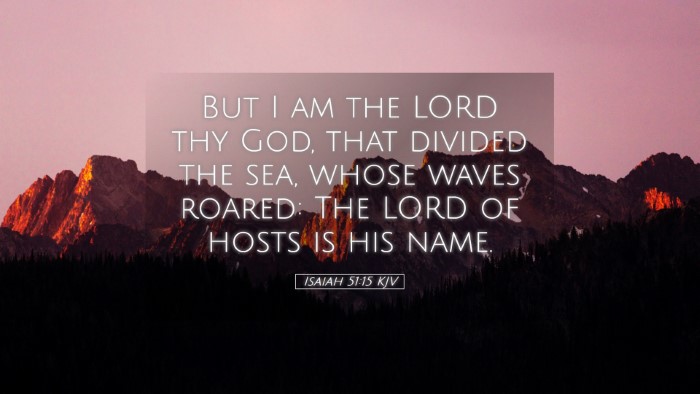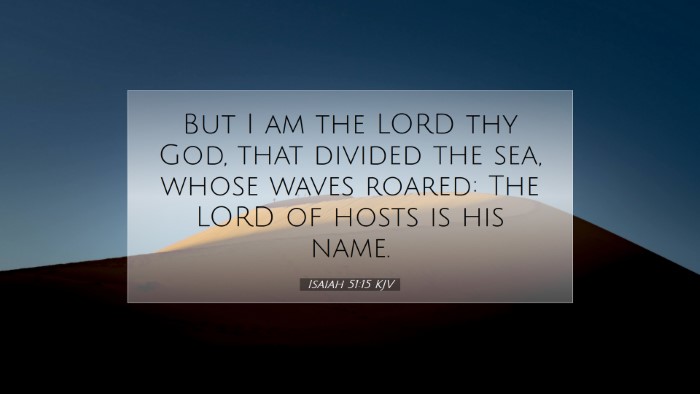Isaiah 51:15 Commentary
Verse Text: "But I am the LORD thy God, that divided the sea whose waves roared: The LORD of hosts is his name."
Introduction
This verse, part of a larger passage calling for comfort and assurance to God's people, emphasizes the Lord's sovereignty and ability to rescue and guide His people from oppression and despair. Here, the prophet Isaiah affirms God's identity and power, inviting a profound reflection on His nature and relationship with Israel.
Exegesis of the Verse
Isaiah 51:15 presents a parallel between God as the creator of the sea and the one who protects His people. The mention of the sea evokes memories of the Exodus when God turned the chaotic waters into a means of salvation for Israel. This contrast highlights God's omnipotence and His covenant relationship with His people.
Insights from Matthew Henry
Matthew Henry emphasizes the sovereignty of God, stating that with His might, He not only creates but also controls the elements of nature. In this specific passage, he underscores that God, who divided the sea, is capable of delivering His people from any threat. Henry points out that the roaring waves symbolize chaos and fear, but they are nothing in comparison to God’s great power. He stresses that understanding the might of God can provide believers with confidence and assurance in His protective love.
Insights from Albert Barnes
Albert Barnes elaborates on the theological implications of God’s power over the sea, which he interprets as a reflection of God's ability to govern all creation. Barnes notes that the name "LORD of hosts" signifies God's authority over the heavenly armaments and earthly powers alike. He encourages believers to trust in God’s ability to deliver them from their troubles and remind them of His historic acts of salvation. For Barnes, the verse serves not only as a declaration of God's might but also as a reminder of His caring nature toward His people.
Insights from Adam Clarke
Adam Clarke provides a detailed examination of the metaphorical use of the sea in this verse. He notes that the "roaring" waves may symbolize the tumultuous experiences of life and the adversities faced by God's people. Clarke emphasizes that God's role as their protector is paramount, contextualizing this within the history of Israel. He also advocates for recognizing God's past interventions—a theme that can inspire current and future generations to seek His guidance and protection in times of need.
Theological Reflections
This verse invites various theological reflections relevant to today’s readers:
- The Majesty of God: The verse reinforces the idea that God's power is far beyond human comprehension. His capability to control and divide the seas serves as a metaphor for His authority over all circumstances of life.
- God's Faithfulness: The assertion that God is the same in His power and character throughout history provides assurance that He will act justly and protectively in contemporary situations.
- Responding to Fear: Just as the Israelites faced the fear of the roaring seas, modern believers often confront their own fears and uncertainties. This verse serves to remind them that fear has no place in the presence of an omnipotent God.
Practical Applications for Ministry
The implications of Isaiah 51:15 for pastors, students, and theologians are profound. Here are several applications:
- Encouragement for Troubled Souls: Pastors can draw on this verse to provide comfort to those facing life’s storms, reminding them of God's protective presence.
- Teaching on God's Sovereignty: This verse serves as an excellent starting point for sermons or teachings that explore the nature of God as sovereign and involved in the lives of His people.
- Reflection on God's Historical Acts: Students and scholars are encouraged to study the historical narratives where God intervened in dramatic ways, drawing parallels to His current involvement in believers’ lives today.
Conclusion
Isaiah 51:15 encapsulates the essence of God's powerful nature and His faithful care for His people. Insights from esteemed commentators reveal a rich tapestry of meaning that challenges believers to trust in God's sovereignty amidst life's uncertainties. As we meditate on this verse, we are reminded to place our faith in the God who calms the roaring seas and stands as the ultimate protector and deliverer.


